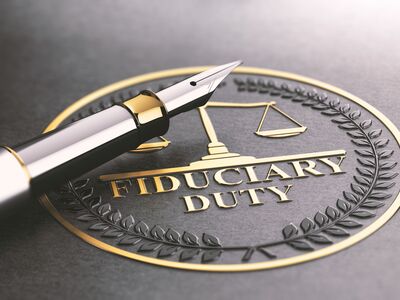Since the advent of Bitcoin in 2009, the use of cryptocurrency has grown exponentially. Today, there are thousands of forms of crypto and digital currencies, with a global market cap exceeding $250 billion. A 2019 survey found that 36.5 million Americans own some form of cryptocurrency, with 61% owning it for investment purposes and around 29% using it for transaction purposes.
The very features that make crypto attractive - anonymity and decentralization - can also increase the risk of your fiduciaries losing access to your crypto holdings. Cryptocurrency, along with other forms of digital assets, should be discussed with your estate planning attorney to ensure that you are minimizing the risks and maximizing the opportunities for these assets to be distributed according to your wishes after your death.
Cryptocurrency is stored in a digital ledger. The ledger is accessed with a private key, which is stored in either an online (hot storage) wallet or an offline (cold storage) wallet. If you lose your private key, there is no customer service number to call or password reset button to press. Without the private key, your crypto is inaccessible and valueless.
How you choose to store your crypto will determine what type of property it is considered and may have implications for how it is transferred under your will or trust.
What type of property is cryptocurrency?
Cryptocurrency is considered personal property, rather than currency, for purposes of estate planning and administration. If the private key for your crypto is held in an online wallet, then it is considered intangible personal property, much like accounts receivable, copyrights or patents. However, if the private key is held on some type of offline storage device, such as a USB drive, then it may be considered tangible personal property, like your clothing or grandma's china.
Why does it matter whether your crypto is considered personal property? Standard language in wills and trusts might designate certain personal property for specific people - for example, you might specify that your piano should be given to your sister, or your jewelry should be given to your daughter. It is also common to have catchall language that gives all of your personal property to a specific person. That language will automatically include your cryptocurrency (because it is considered personal property), even if you only meant it to include your household furnishings.
How crypto is classified also impacts how it is taxed. Because crypto is personal property, not legal tender, it is taxed in a way that is similar to real estate or stock. When you sell or exchange your crypto, this may lead to capital gains or losses that are reportable on your tax returns. When you use crypto to make a purchase, the IRS sees that transaction as you “selling” your crypto for the value of the item purchased. This tax treatment should be kept in mind when completing personal, gift, trust and estate tax returns.
How will my executor or trustee be able to access my cryptocurrency?
Ensuring proper distribution of any crypto you own at the time of your death can be very simple, but also takes specific planning. In most states, it is a crime to access a computer or other device without specific authorization, so if your fiduciary accesses your computer to attempt to locate or access your crypto account, they are committing a crime unless you have granted them specific authority to do this in your will, trust or power of attorney.
The good news is that your fiduciary will not need a court order to access your crypto wallet. Because a crypto account is essentially a bearer account, accessible by anyone with the private key, your fiduciary will have immediate access to your account if they have your private key.

The bad news is that your fiduciary will not be able to get a court order to access your crypto wallet. Unlike more traditional types of investment or bank accounts, if your fiduciary does not have the private key, they cannot reset the private key, nor can they petition for a court order to grant them access to your account.
Once your fiduciary gains access to your account, they will need to have your crypto holdings appraised, in the same way that real estate or other personal property is appraised for probate and tax purposes. Your fiduciary will then follow your instructions and either liquidate or distribute your crypto holdings according to your wishes.
Can cryptocurrency be held in a trust?
Trusts may own cryptocurrency, but there are four things to keep in mind if your trust owns crypto:
- Choice of fiduciary - Some professional fiduciaries, such as banks, may have policies against serving as trustee of trusts that hold crypto. If you are considering naming a professional fiduciary, interview them regarding their policies, and always name an alternative trustee in case your first choice is unwilling to accept the appointment.
- Authority - In most states, a trustee has a fiduciary duty to invest trust assets as a reasonably prudent investor would. As a result, most trustees invest in a balanced portfolio of standard assets, such as stocks, bonds, mutual funds, cash, real estate, etc. Because crypto may be considered “speculative,” there is a possibility that it may fall outside the boundaries of what would be considered a reasonably prudent investment for a trust. The solution to this is to include language in your trust that gives your trustee the specific authority to hold crypto as a trust asset.
- Access - As previously mentioned, ensuring that your successors have access to your crypto is a topic that needs to be carefully considered. Make sure that your successor trustee has immediate access to your crypto wallet by communicating with them in advance about what they will need and where to find it.
- Taxes - Any distributions of crypto from your trust to its beneficiaries will need to be reported on the trust's tax return. For this reason, it will be important for your trustee to know the tax basis of your crypto as well as its value on the date of transfer. Keeping records of how and when you acquired your crypto holdings will help the trustee comply with the reporting requirements.
If you own crypto, or if it is something you might own in the future, here is a checklist of practical tips to help you ensure that your crypto is incorporated into your estate plan.
- Talk with your estate planning attorney about your cryptocurrency.
- Make sure your executor or trustee knows how to access your crypto wallet.
- Choose your fiduciaries with extreme care because they will have immediate and full access to your crypto account.
- If your crypto is owned by your trust, consider including language in your trust specifically permitting your trustee to invest in crypto.
- Keep records of your crypto purchases, so that you will know the tax basis of these assets.
- If you do not want your crypto to be distributed as personal property through your will or trust, consider making a specific bequest of it to an individual or charity.



